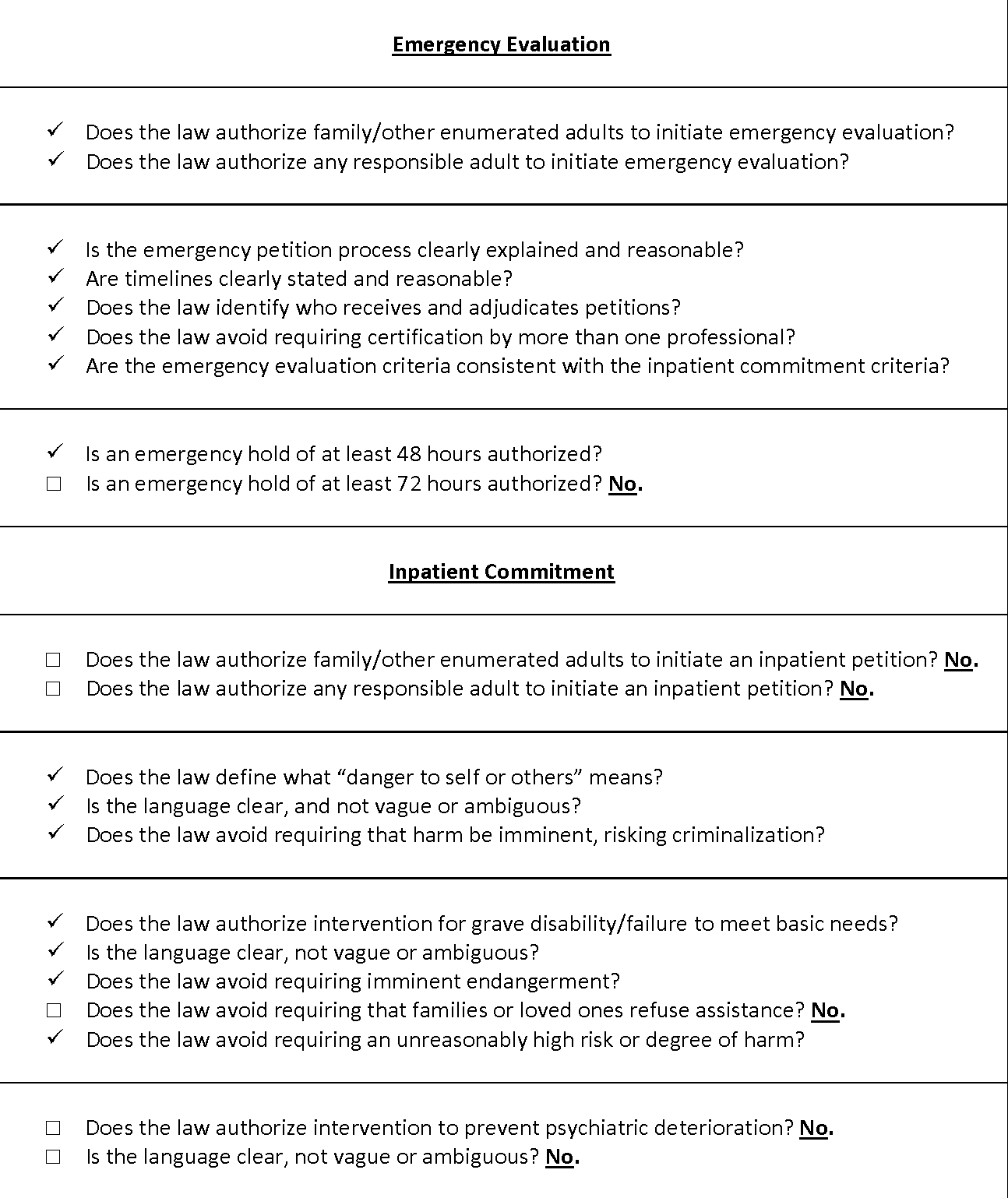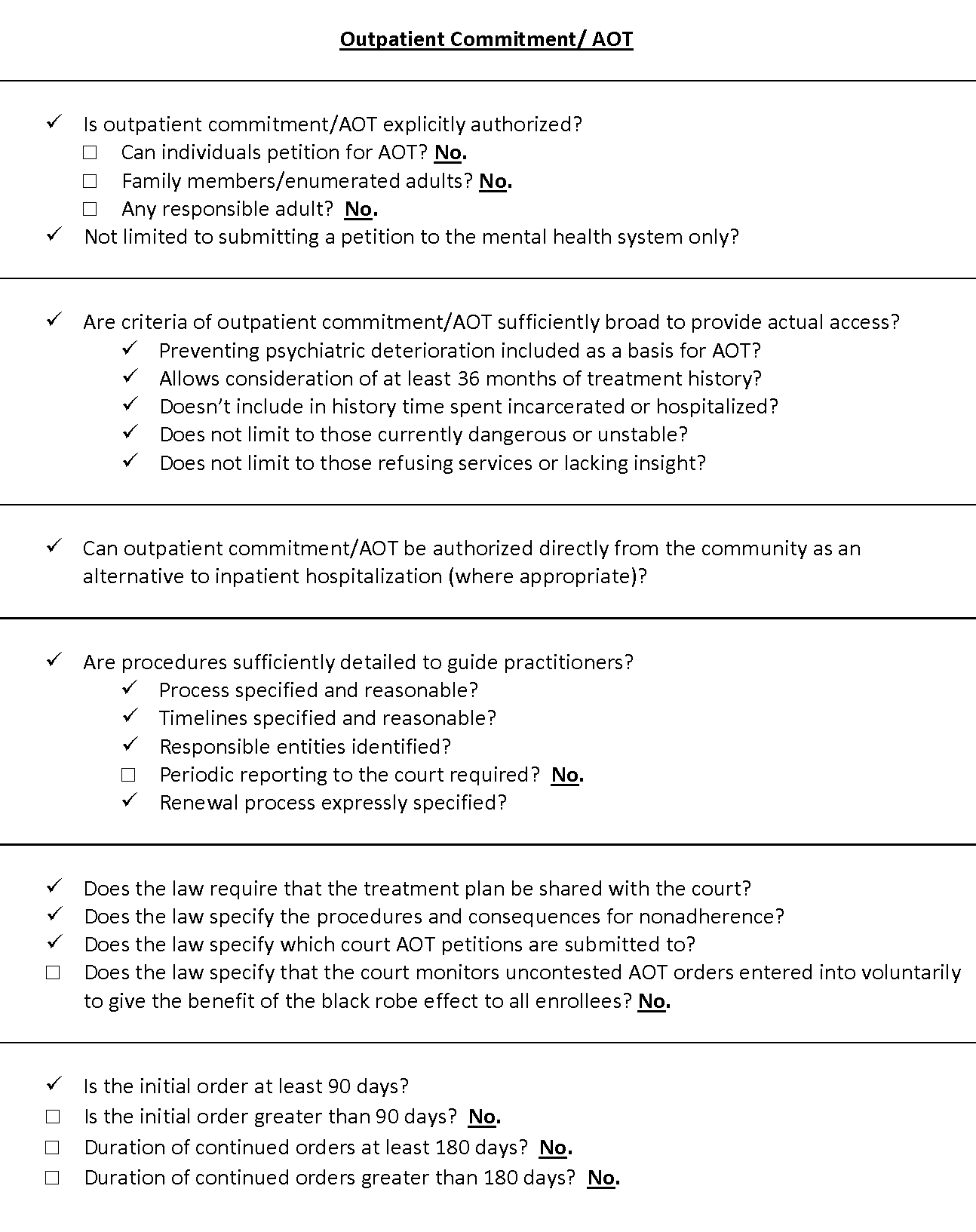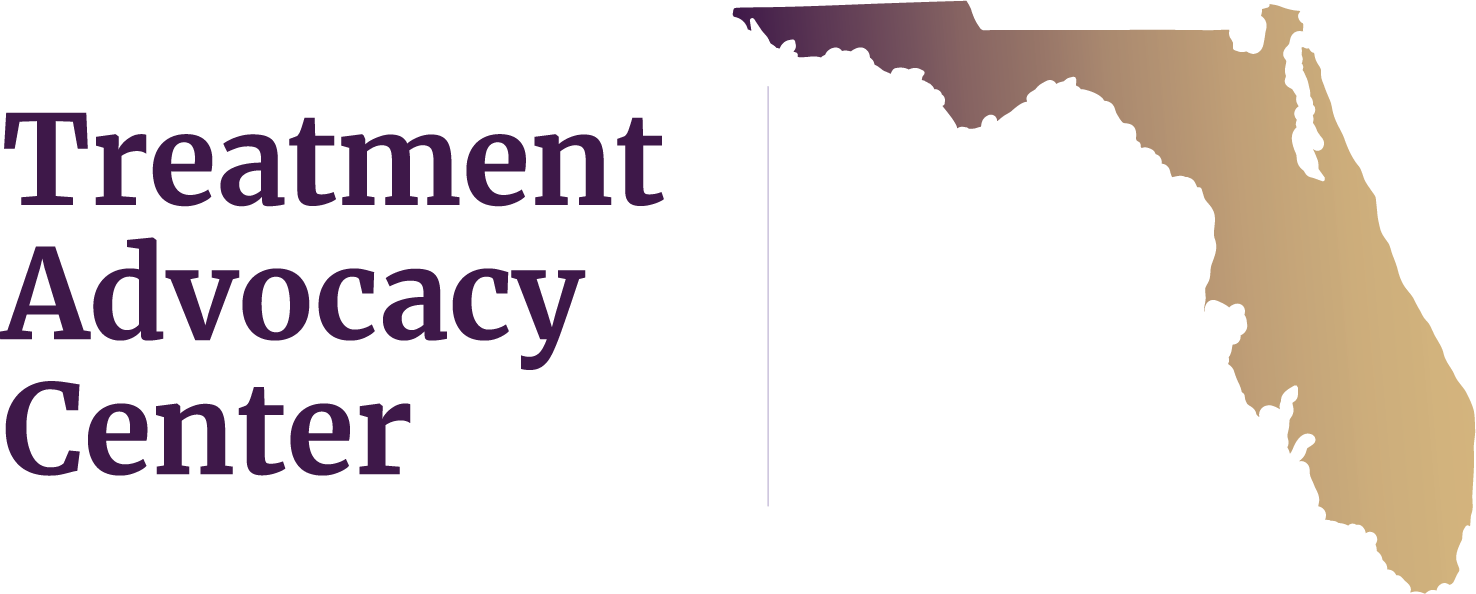Family Resources in Resources in Florida
- Florida Department of Behavioral Health (floridahealth.gov) Resources and contacts
- Mental Health Resource Center (jud11.flcourts.org) Find information and contacts in the legal system
- Guardianship (flcourts.gov) Forms to submit to determine incapacity and petition for guardianship
- NAMI Florida (namiflorida.org) Support groups, training, information
- Disability Rights Florida (disabilityrightsflorida.org) Protection and advocacy for individuals with disabilities
- Homeless Information: Florida | U.S. Department of Housing and Urban Development (hud.gov/states/florida) Find help hotlines, financial assistance, foodbanks and shelters by county
- Florida Inmate Information Search (fdc.myflorida.com) Find an inmate by name or DC number
- The Florida Bar (floridabar.org) Legal assistance
How many people in Florida have SMI?
individuals with severe mental illness.
individuals with SMI who receive treatment in a given year.
of the adult population is estimated living with a SMI in the United States.
State psychiatric hospital beds in Florida
2023 total beds: 2,522
- Civil beds: 1,414
- Forensic beds: 1,108
2023 beds per 100,000 people: 11.3
Click here for more information about state psychiatric hospital beds in Florida.
A minimum of 50 beds per 100,000 people is considered necessary to provide minimally adequate treatment for individuals with severe mental illness. Florida fails to meet this minimum standard.
For Additional Information
Data is a powerful tool to advocate for change. Curious about a specific data point in your state? Reach out to us at ORPA@treatmentadvocacycenter.org
Fast Facts on SMI in Florida
Deinstitutionalization, outdated treatment laws, discriminatory Medicaid funding practices, and the prolonged failure by states to fund their mental health systems drive those in need of care into the criminal justice and corrections systems.
14%
11,258
2,522
5 to 1
2021 Florida State Mental Health Agency's expenditures
Every state receives block grant funding from the federal government to provide mental health services to their community. Below is some information about how these dollars are spent and compares to other state spending.
$859,162,846
44%
$4,621
0.9%
Florida's Treatment Laws
FLA. STAT. § 394.463(2)(a). An involuntary examination may be initiated by any one of the following means: 1. A circuit or county court may enter an ex parte order stating that a person appears to meet the criteria for involuntary examination and specifying the findings on which that conclusion is based. The ex parte order for involuntary examination must be based on written or oral sworn testimony that includes specific facts that support the findings. If other less restrictive means are not available, such as voluntary appearance for outpatient evaluation, a law enforcement officer, or other designated agent of the court, shall take the person into custody and deliver him or her to an appropriate, or the nearest, facility within the designated receiving system pursuant to s. 394.462 for involuntary examination. 2. A law enforcement officer shall take a person who appears to meet the criteria for involuntary examination into custody and deliver the person or have him or her delivered to an appropriate, or the nearest, facility within the designated receiving system pursuant to s. 394.462 for examination. 3. A physician, a physician assistant, a clinical psychologist, a psychiatric nurse, an advanced practice registered nurse registered under s. 464.0123, a mental health counselor, a marriage and family therapist, or a clinical social worker may execute a certificate stating that he or she has examined a person within the preceding 48 hours and finds that the person appears to meet the criteria for involuntary examination and stating the observations upon which that conclusion is based. If other less restrictive means, such as voluntary appearance for outpatient evaluation, are not available, a law enforcement officer shall take into custody the person named in the certificate and deliver him or her to the appropriate, or nearest, facility within the designated receiving system pursuant to s. 394.462 for involuntary examination. FLA. STAT. § 394.463(1). A person may be taken to a receiving facility for involuntary examination if there is reason to believe that the person has a mental illness and because of his or her mental illness: (a) 1. The person has refused voluntary examination after conscientious explanation and disclosure of the purpose of the examination; or 2. The person is unable to determine for himself or herself whether examination is necessary; and (b) 1. Without care or treatment, the person is likely to suffer from neglect or refuse to care for himself or herself; such neglect or refusal poses a real and present threat of substantial harm to his or her well-being; and it is not apparent that such harm may be avoided through the help of willing family members or friends or the provision of other services; or 2. There is a substantial likelihood that without care or treatment the person will cause serious bodily harm to himself or herself or others in the near future, as evidenced by recent behavior.
FLA. STAT. § 394.467(3). The administrator of the facility shall file a petition for involuntary inpatient placement in the court in the county where the patient is located. FLA. STAT. § 394.467(1). A person may be ordered for involuntary inpatient placement for treatment upon a finding of the court by clear and convincing evidence that: (a) He or she has a mental illness and because of his or her mental illness: 1. a. He or she has refused voluntary inpatient placement for treatment after sufficient and conscientious explanation and disclosure of the purpose of inpatient placement for treatment; or b. He or she is unable to determine for himself or herself whether inpatient placement is necessary; AND 2. a. He or she is incapable of surviving alone or with the help of willing and responsible family or friends, including available alternative services, and, without treatment, is likely to suffer from neglect or refuse to care for himself or herself, and such neglect or refusal poses a real and present threat of substantial harm to his or her well-being; or b. There is substantial likelihood that in the near future he or she will inflict serious bodily harm on self or others, as evidenced by recent behavior causing, attempting, or threatening such harm; and (b) All available less restrictive treatment alternatives that would offer an opportunity for improvement of his or her condition have been judged to be inappropriate.

FLA. STAT. § 394.4655(4)(a). A petition for involuntary outpatient services may be filed by: 1. The administrator of a receiving facility; or 2. The administrator of a treatment facility. FLA. STAT. § 394.4655(2). A person may be ordered to involuntary outpatient services upon a finding of the court, by clear and convincing evidence, that the person meets all of the following criteria: (a) The person is 18 years of age or older; (b) The person has a mental illness; (c) The person is unlikely to survive safely in the community without supervision, based on a clinical determination; (d) The person has a history of lack of compliance with treatment for mental illness; (e) The person has: 1. At least twice within the immediately preceding 36 months been involuntarily admitted to a receiving facility or treatment facility …, or has received mental health services in a forensic or correctional facility. The 36-month period does not include any period during which the person was admitted or incarcerated; or 2. Engaged in one or more acts of serious violent behavior toward self or others, or attempts at serious bodily harm to himself or herself or others, within the preceding 36 months; (f) The person is, as a result of his or her mental illness, unlikely to voluntarily participate in the recommended treatment plan and has refused voluntary services for treatment after sufficient and conscientious explanation and disclosure of why the services are necessary or is unable to determine for himself or herself whether services are necessary; (g) In view of the person’s treatment history and current behavior, the person is in need of involuntary outpatient services in order to prevent a relapse or deterioration that would be likely to result in serious bodily harm to himself or herself or others, or a substantial harm to his or her well-being[;] (h) It is likely that the person will benefit from involuntary outpatient services; and (i) All available less restrictive alternatives that would offer an opportunity for improvement of his or her condition have been judged to be inappropriate or unavailable.

Recommended updates to treatment laws
- 1
Amend Fla. Stat. § 394.463(2)(g)(4) to authorize citizen right of petition for at least enumerated citizens, preferably any responsible adult, for inpatient commitment
- 2
Amend Fla. Stat. § 394.467(1)(a)(2)(a) to remove requirement that family/friends refuse assistance for eligibility
- 3
Add psychiatric deterioration criteria or amend grave disability criteria to include it
- 4
Amend Fla. Stat. § 394.4655 to authorize citizen right of petition for at least enumerated citizens, preferably any responsible adult, for outpatient commitment
- 5
Amend Fla. Stat. § 394.4655 to require periodic reporting to the court for outpatient orders
- 6
Amend Fla. Stat. § 394.4655(7)(b)(1) to extend duration of outpatient order beyond 90 days
- 7
Amend Fla. Stat. § 394.4655(8) to extend duration of continued orders to or beyond 180 days
- 8
Adopt express procedures for the court to monitor uncontested AOT orders entered into voluntarily to give the benefit of the black robe effect to all enrollees
